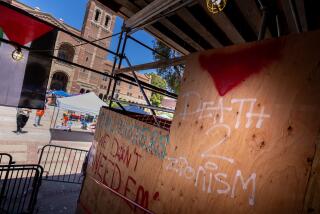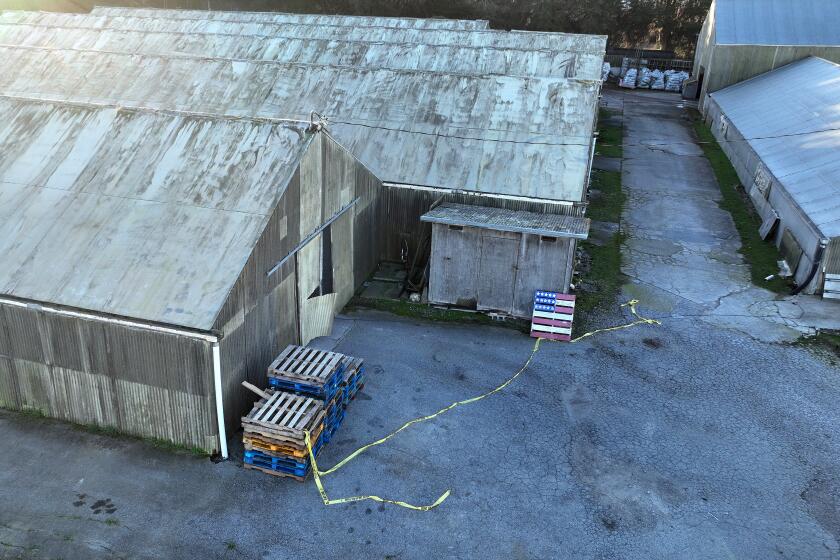Firm Calls It Public Service, but Job May Be a Gold Mine
Is it philanthropy or just good business?
The firm that agreed to fill much of Potrero Canyon in Pacific Palisades is doing so free of charge.
One partner says that is because he and his business associates have a keen sense of duty and public service toward the city of Los Angeles. But competitors and a city official say they see another motivation: Making money. Pure and simple.
Last June, the city’s Department of Recreation and Parks awarded a partnership called Potrero Canyon Constructors the contract for the filling of the canyon. The firm’s $0 bid outdid its closest competitor, which wanted $2.75 million.
Gerry Gibbs, a partner in the Potrero project, said his Calabasas-based firm will spend at least $2.2 million for basic project engineering. He considers the work a donation to the city, attributing the low bid to “a public-service attitude.”
But others suggested Gibbs and his partners made a good business deal too.
City officials estimate that as much as 2.4 million cubic yards of earth still need to be moved to the canyon. Gibbs said he and his partners will supply about three-quarters of that dirt, with the remaining quarter coming from independent haulers.
That could mean 40,000 truckloads by the independents, which are charged $37.50 for each trip by the Potrero partnership. That would add up to $1.5 million.
Competitors, who asked not to be named, suggested another advantage. With its low bid, the Potrero Canyon Constructors partnership gained control of the Westside’s only significant landfill. Most firms must pay to truck their dirt to the San Fernando Valley and beyond, increasing their transportation fees.
“This gives (the partnership) the inside track on bidding (to haul dirt from) almost any excavation job south of Mulholland (Highway) and west of the Harbor Freeway,” said Kathleen Chan, who manages the Potrero project for the city’s Department of Parks and Recreation.
Gibbs agreed the site is a convenient dumping location, but said he still believes the $2.2 million in engineering costs should be considered a donation. In fact, Gibbs said he will ask the city to put that in writing. If the city does that, Gibbs and his partners will have another prize--a big tax writeoff.
Concludes Chan: “There are a couple of real smart business guys behind this project.”
More to Read
Start your day right
Sign up for Essential California for news, features and recommendations from the L.A. Times and beyond in your inbox six days a week.
You may occasionally receive promotional content from the Los Angeles Times.







